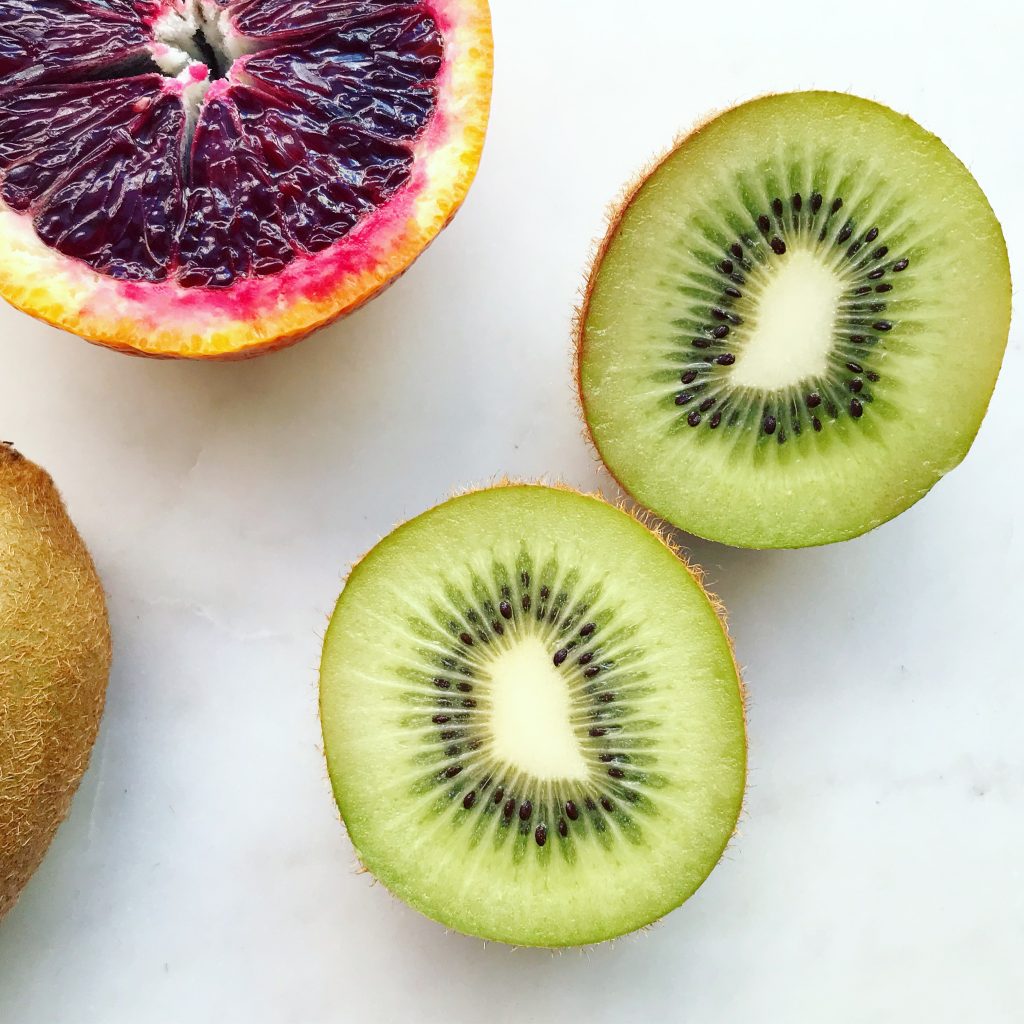In recognition of the 49th annual Earth Day, I wanted to put together a list of 11 easy and sustainable (aka environmentally friendly) practices you can put into place each day in the kitchen and beyond.
Earth Day is more or less about bringing awareness to air and water pollution, and doing what we can as individuals to lessen our personal impact on the environment. Read on to learn my tips for minimizing food waste, reducing plastic use, and practicing sustainable shopping habits as it relates to food and cooking.
Here are some ways you can do your part to help our planet. Because as the saying goes, there is no planet B.
Minimize Food Waste
Use the skins, peels and scraps of vegetables and fruits.
You can eat the skins and peels of fruits and vegetables that you may not think about. Potato, sweet potato and carrot skins are all delicious (and extra nutritious!), just scrub them clean before cooking. Same goes for cucumber skins, just give ‘em a good scrub before chopping.
Of course apple skins and peach skins are perfectly fine to eat, and kiwi and banana peels can be added to smoothies. And use orange and lemon zest for just about any recipe, sweet or savory.
Use mushroom, celery and leek stems for making homemade veggie stock. And turn that stale bread into croutons or breadcrumbs.
And have you ever made a carrot top pesto!? Just clean the green tops and add some to your next basil pesto!

Photo: Jerran Boyer
Compost your food scraps.
Why compost? Excess food waste heads to landfills and also contributes to greenhouse emissions.
Many cities, NYC included, have composting programs to reuse organic materials.
I leave a bowl out when cooking to toss inedible food scraps into. Then I store them in a zip bag in the freezer until pickup days. Learn more about NYC’s composting program here.
Reduce Plastic Use
Stop buying plastic water bottles!
Plastic water bottles pollute the environment, end up in our oceans, and take over 400 years to biodegrade. And plastics of all kinds that end up in the ocean harm marine life.
Microplastics, which are plastic fragments, end up in our food and water supply, and therefore our bodies. Even if you don’t eat seafood!
Read this article about microplastics found in bottled water to learn more.
The Atlantic
The solution to ditching plastic water bottles? Carry a reusable water bottle. I love my Hydroflask when running about town, and my Grayl water purifying bottle when I travel so I can have filtered water on the go.
Stop using plastic straws!
Plastic straws can take 200 years to decompose. If you must use a straw you can find environmentally friendly paper, bamboo or metal ones such as these.

Photo: wwf.org
Ditch the single-use plastic bags and wraps for food storage.
Instead of plastic, use glass containers, reusable bags, and plastic-alternatives for food storage. These products are made from nontoxic biodegradable materials that are recycled.
Earth’s Basic is a natural alternative to plastic wrap and is great for covering bowls, fruit, leftovers and more. And Stasher bags can be used in place of single-use plastic zip bags.
Practice Sustainable Shopping Habits
Take reusable bags to the market.
Rather than use the plastic bags in the produce section or at the farmers market, take reusable cotton or mesh bags for your fruits and veggies. I love my All Cotton and Linen bags, which come in various sizes, are non-toxic, and are machine washable.
I also take two or three tote bags to the store when I go shopping. Bonus: these also make it easier to carry a load of groceries!
All Cotton and Linen bags
Use glass jars in place of plastic.
Take clean glass jars to the supermarket and buy nuts and grains in bulk, versus buying in plastic. Not only is this more eco-conscious, buying in bulk is often cheaper! Plus: it looks nice storing rice and nuts in jars vs plastic bags.
Glass jars available on Amazon
Buy eco-friendly cleaning supplies and paper products.
Brands such as Mrs. Meyer’s and Seventh Generation are great for eco-friendly hand and dish soaps, cleaning supplies, paper products and more. And I also love Puracy, which makes both home and body products. As a side rec, try their body wash!
Not only do these companies use nontoxic formulas, they also use plant-derived ingredients and recycled materials in their products and packaging.
Other Tips
Recycle
Did you know that our recyclables are shipped to China to be processed? But now China is rejecting our mass-produced garbage. Therefore, cities and towns are doing away with their recycling programs.
This comes at an environmental cost, because trash piling up in landfills emits methane, which is bad for the environment.
What can we do? Aside from buying less stuff in general (not always realistic), know which items can and cannot be recycled in your area’s local recycling program. And buy less plastic!
Eat less meat, eat more plants.
Again, not realistic for everyone, but reducing or eliminating our consumption of meat and dairy would reduce our personal carbon footprint.
According to some studies, this is the single biggest thing we can do to help save the environment. This is because industrial agriculture is a leading cause of deforestation, wildlife extinction, and greenhouse gas emissions.
So at the very least, develop a “meat consciousness” and try to incorporate more plant-based meals in your diet each week. As a bonus, you are also doing better for your health.
You can learn more about the environmental impacts of consuming meat and dairy here.
Photo: Honeybee Conservancy
Donate to honey bee conservation.
Did you know that over 75% of the crops we eat rely on or benefit from bee pollination? And while demand for pollinated crops is increasing, the bee population is decreasing, in part due to human activity and climate change.
In addition to helping offset this by buying organic produce without harmful pesticides, you can also sponsor a hive or donate to the Honeybee Conservancy.
Do you already practice some of these earth-friendly habits? Have more ideas to suggest? I’d love to hear from you so please leave a comment below!
Sources: https://www.earthday.org www.wwf.org https://thehoneybeeconservancy.org






Thanks for your post about our products and we would love to share our other products with you. Please share your shipping address.